Splashed across marquees, kicking high in the dance line or creating a masterpiece with a musical instrument, performers on the Las Vegas Strip enter and exit the stage’s megawatt spotlight. Some stay for a season, others for decades. Toiling in small venues or owning grand showrooms, all hope to leave their mark.
But what happens when they leave their defining gigs? What does life look like after the Strip?
Ronnie Foster of "Human Nature"
You might spot him playing pickup basketball around town, which he does five days a week even at age 66. Teammates and opponents alike might not realize those hands dealing the rock have served Stevie Wonder (he played on “Summer Soft” on “Songs in the Key of Life”), George Benson (he backed Benson for 15 years), Lionel Richie, Chaka Khan, Roberta Flack, David Sanborn, Grover Washington Jr., Chet Atkins and The Jacksons (he’s on 1980 album “Triumph”).
That pedigree of touring and recording led Foster to be the pianist and music director of the “Human Nature” Motown production during the show’s run at Sands Showroom at Venetian. But these days, he’s gigging with just two other guys.
The Ronnie Foster Trio has been on the scene since Foster left the Australian singing quartet in December; its road dates include the famed Monterey Jazz Festival on Sept. 18. Locally, its blend of jazz and R&B has turned up at the Smith Center’s Cabaret Jazz and the Sand Dollar and Dispensary lounges. The band’s next gigs are at 2 and 6 p.m. July 24 at Cab Jazz.
These are small-ish spaces for Foster’s massive talent — but the artist is more about what he creates than where.
“I’m doing what I really love,” Foster says. “I have always had a lot to offer, and I do feel like I am a creative, emotional being who doesn’t like to be inside an artistic box.”
Thus, his departure from “Human Nature” was inevitable, as the Australian gents do a show that is polished and precise but doesn’t afford any free-form musical expansion.
“I was being used minimally, and the idea of playing the same songs every night, which gave me some security, was not what I wanted to do long term,” Foster says. “I felt that, in that period, I kind of lost who I was, musically, and I realized I need to be challenged.”
Foster hints at his head space in the title of a CD the trio is recording now. “It’s called ‘Reboot,’” he says, “and you can figure out the meaning.”
Jeff Leibow of "Jersey Boys"
Jeff Leibow was the voice of Nick Massi in “Jersey Boys” for 2,726 performances, an original member of the Las Vegas cast from May 2008 until his contract timed out in November 2014. That covered the show’s first home at Palazzo and its current one at Paris Las Vegas. One memorable moment was when Leibow-as-Massi would tell his bandmates he was out. “I just wanna go home,” he’d say, flatly. “When you have four guys, and you’re Ringo …”
“Funny, I have never seen the show from the audience,” the singer says today, “but I had a great view of it for a long time.”
Leibow was always reaching beyond the production — even during his busy performance schedule — as a representative of the Neurofibromatosis Network. The organization advocates for vital research on the genetic disorder of the nervous system that causes tumors to form and develop erratically.
Jeff and Melody Leibow’s daughter, Emma, was born with this condition, inspiring the couple to dedicate their time and ample energy to fighting it. Since 2011, Jeff Leibow has organized and hosted the annual NF Hope Concert at the Venetian, an all-star charity event that has raised more than $500,000.
Upon leaving “Jersey Boys,” he became NF Network’s director of development, continuing his work with the fundraiser and making yearly pilgrimages to Washington to lobby lawmakers to support the campaign. He also is working on his solo career, taking roles in off-Strip productions such as “Ace” at UNLV’s Judy Bayley Theatre and regularly performing at the Composers Showcase at the Smith Center.
Leibow has joked that the first time he went grocery shopping during daylight hours was after he left “Jersey Boys.” “To shop and be home for dinner — that was a new thing for us,” he says.
There have been other pleasant surprises for a family coping with NF every day: Emma received news recently that a brain tumor detected in March had not grown.
“That’s enough good news for us,” Leibow says. “We need no more than that.”
Wassa Coulibaly of "Zumanity"
For 10 years, Wassa Coulibaly was a featured performer in Cirque du Soleil’s “Zumanity” at New York-New York. When she left in 2014, she took with her an exotic energy that suited Cirque’s lone adult production in Las Vegas. Beautiful as it was, she found the role stifling.
She’d felt that before, growing up impoverished in Dakar, Senegal, and being married to a musician who moved her to Hawaii and tried to push the artist into stripping. The relationship soured, and Coulibaly landed in Santa Monica, Calif., where she attended community college to study dance.
She was a natural, at once sinewy and explosive. She’d also learned the art of clothing design from her mother in her native country, so when she heard of a Town Square space with a theater on one side and a boutique on the other, the Strip star felt a connection. Gathering 20 members of the theater community to help with staging and production, Coulibaly opened Baobab Stage — named for a Senegalese tree — in October 2012.
Today, she glides across that stage in her biographical production, “The Red Dress,” and leaps toward the ceiling during “Tribal Night” percussion shows. They’re favorites among Vegas entertainers, who turn up to the 365-seat playhouse to watch and perform solo acts in the rotation with midnight burlesque and cultural showcases.
Coming up July 21 is another Tribal Night, an evening of unbroken percussive performances inspired by Coulibaly’s home region. On July 23, she launches an open-mic comedy series, on the heels of another devoted to classic films.
She notes that it was far easier to be part of a Cirque show than operate an independent theater and apparel business. Certainly, Coulibaly valued her long tenure in “Zumanity.” But aside from the night she left the show, “weeping like a baby,” she has no regrets.
“They offered to keep me as a backup (artist), but when I was done, I was done,” she says. “I have missed the people, the social part of it, of course. But creatively, I need to be fulfilled. … What we do here is magic. I am proud of it.”
Stephanie Sanchez of "Fantasy"
A native Las Vegan, Stephanie Sanchez first performed at Bob Stupak’s Vegas World in “Hallelujah Las Vegas.”
She was 17, a backup dancer in a 99-cent show. The dancers wore sequined, feathered costumes with 3-inch heels, pulling off a “‘Jubilee’ wannabe.”
Sanchez went on to perform in a host of Strip productions, including stints at the old Aladdin, where she sang and danced in “Abracadabra,” “Alakazam” and “Country Tonight.” She moved to the MGM Grand Adventure Theme Park, performing such roles as Scary Spice in a Spice Girls tribute, and later to the Rio for “At the Copa,” a musical starring David Cassidy and Sheena Easton.
In 2000, Sanchez joined the show for which she is best known, “Fantasy” at Luxor. A highlight was her powerhouse delivery of the Police classic, “Roxanne.” Years after she left the show, her vocal for the “Fantasy” theme song helped introduce the show.
“What I miss most about ‘Fantasy,’ specifically, is not the performing,” she says, “it’s the taking care of the cast. … That is a large part of the job.”
Nicknamed “Singer,” Sanchez was “Fantasy’s” vocalist for nine years — that role’s longest run in the show’s 16 years — embarking on a solo career in 2009 and also working for a Las Vegas entertainment-booking company.
She’s back on the Strip, at New York-New York. But she’s not in a costume. Sanchez wears a suit with a nametag attached. She is a top-level exec, charged with recruiting and signing talent at Bar at Times Square, Nine Fine Irishmen and the Brooklyn Bridge promenade. Her deep knowledge of the local entertainment scene has led to regular appearances by such notable favorites as “America’s Got Talent” winner Michael Grimm and the bands Phoenix and the Spazmatics.
“As corny as it sounds, this feels like home. And I still get recognized, usually by MGM employees who squint at me and say, ‘Singer?’” Sanchez says. “It feels like where I’m supposed to be. In my 30-plus years as an entertainer, 25 have been with this company (MGM Resorts). With the exception of Macau, I have performed at every property.”
Ben Hale of "Phantom — The Las Vegas Spectacular" and "Million Dollar Quartet
Ben Hale was a lead performer on the Strip from 2006 to 2015, as Raoul in “Phantom - The Las Vegas Spectacular” at Venetian and then as the original Johnny Cash in “Million Dollar Quartet.”
The latter show is still playing at Harrah’s, and Hale left of his own accord on a career path that raised some eyebrows.
In June 2015, he and his family — his wife Rebekah, also a “Phantom” cast member, and their children, Scarlet Rose and Loretta — left Las Vegas so he could enroll in the audio engineering and production program at Blackbird Studio in Nashville. It’s operated by John McBride, husband of country-music superstar Martina McBride, and famous for turning out great music technicians.
“I’ve always written and recorded, and I know that there are holes in my knowledge that I need to fill,” Hale says. “I wanted to fill those gaps.”
Now a certified recording engineer, he initially talked of returning to Vegas and “MDQ,” but Nashville is home (and the nearest neighbor is a football field away).
Hale did fill in for a cast member in a touring version of the show recently, at Houston’s Theatre Under the Stars. “This proves you have to have one foot in both worlds at all times,” he says, adding that people ask all the time what it was like performing in Las Vegas. “I tell them, ‘It’s kind of crazy, but in a great way.’ It’s kind of hard to equate, because there is no place like Las Vegas, really. In Las Vegas, you learn how to get through a show a lot faster. You understand the pace of a 90-minute show instead of 2.5 hours, and it’s something that a lot of theater companies could learn from.”
Amos Glick of "Le Reve"
In February, after nine years and 3,551 shows, Amos Glick left his role as one of the original clowns in Wynn’s “Le Reve.”
A member of the San Francisco Mime Troupe, Glick was lured by the romance of Strip entertainment, though “the negative aspect of being a numbered employee began to temper my bliss,” he says. “I’ve never been in an environment where so many people were constantly afraid of losing their jobs.”
Rather than accept a pay cut and reduced stage time, Glick left the show and Las Vegas. But he cherishes the exposure to so many brilliant artists.
“You are an immediate member of this huge community of performers and technicians from all over the world who are the best at what they do. I mean Olympic-level the best. Just being around them was inspirational.”
Living in Burbank, Calif., he’s still around them, having banked the short film “A Man Wakes Up,” which co-stars Jimmy Slonina (of now-closed “Vegas Nocturne” and “Zarkana”) and screened at 14 festivals.
Glick remains in the spotlight, performing improv at Impro Theatre, where he’s taking sitcom script-writing courses. He looks back on “Le Reve” with amazement.
“One moment I would be onstage, the next under the water with my hand outstretched to catch a regulator and be scooped up by a diver who would swim me through a tunnel 10 feet below the water. Every time I did that, I would think, ‘I can’t believe I’m at work right now.’”

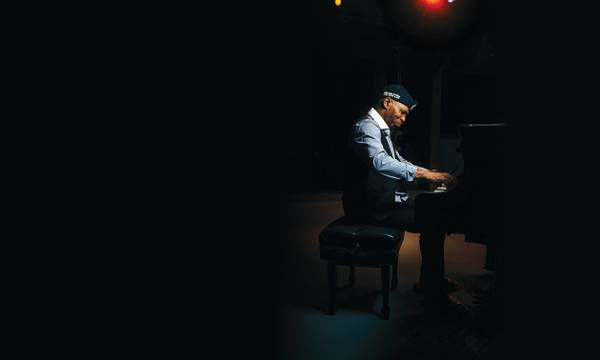
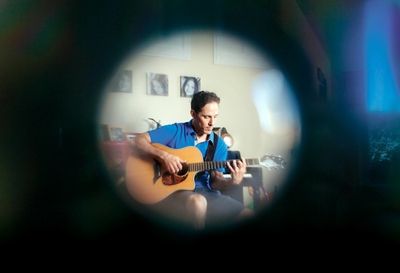
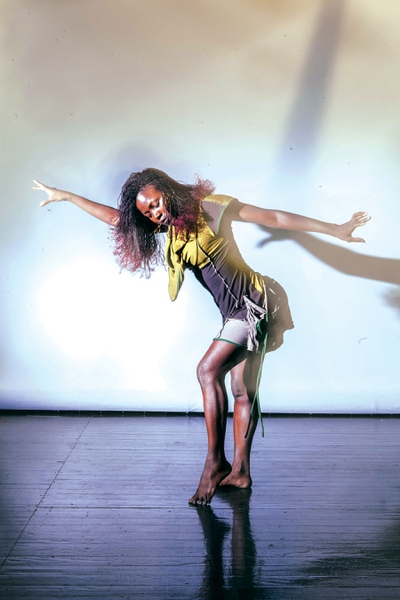
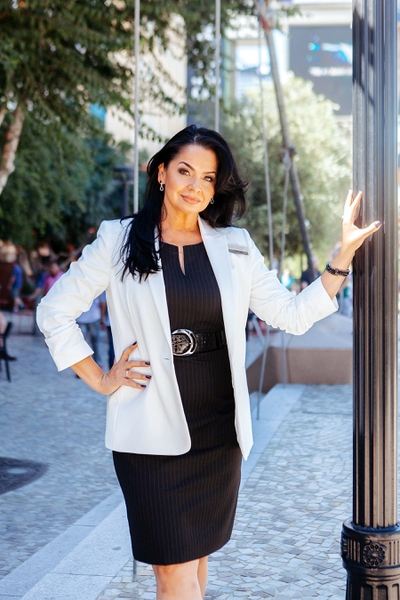
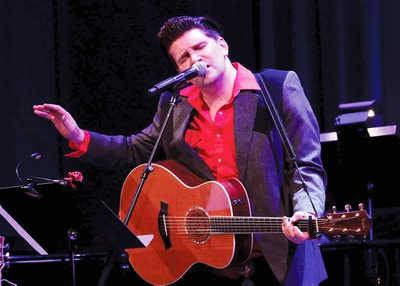
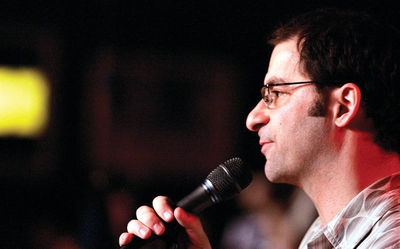
Join the Discussion:
Check this out for a full explanation of our conversion to the LiveFyre commenting system and instructions on how to sign up for an account.
Full comments policy